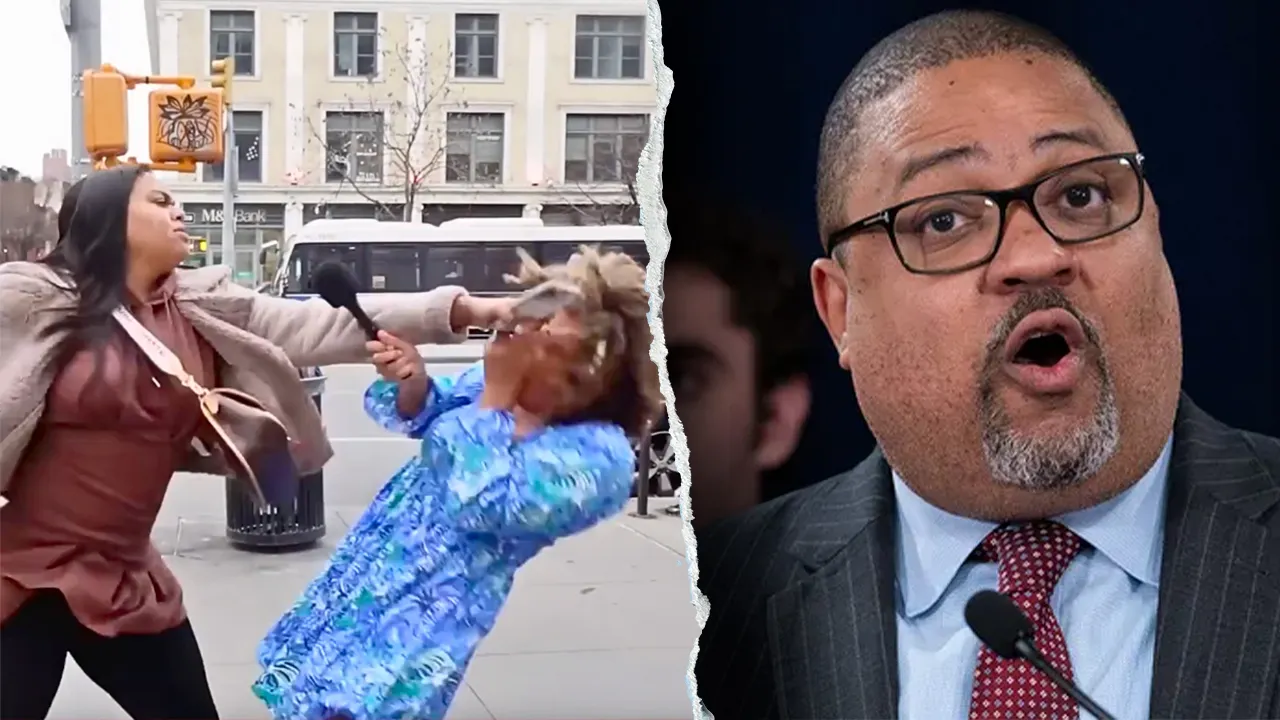The Incident That Sparked National Attention
In an era where political discourse increasingly spills into public spaces, few incidents have highlighted the intersection of free speech, political violence, and prosecutorial accountability quite like the case of Savannah Craven Antao. The conservative pro-life influencer found herself at the center of a national conversation after being physically attacked during a street interview about abortion rights in New York City, only to later discover that her attacker would face no consequences due to what officials described as a “clerical error.”
The incident, which was captured on video and subsequently went viral across social media platforms, showed Antao being punched in the face while conducting what appeared to be a peaceful interview about abortion perspectives on a New York City street. The shocking footage quickly spread across conservative media outlets and social platforms, sparking debates about political violence, free speech protections, and the safety of activists expressing controversial viewpoints in public spaces.
The Prosecutorial Breakdown
What transformed this case from a simple assault charge into a broader commentary on prosecutorial competence was the revelation that Manhattan District Attorney Alvin Bragg’s office had to drop all charges against Antao’s attacker due to administrative failures. According to reports, a clerical error in the prosecutor’s office resulted in the case being mishandled to such a degree that pursuing charges became legally impossible.
This development has raised serious questions about the efficiency and reliability of one of the nation’s most high-profile prosecutor’s offices. The Manhattan DA’s office, which handles thousands of cases annually and has been thrust into the national spotlight for various high-profile prosecutions, now faces scrutiny over its basic administrative processes.
Understanding Prosecutorial Discretion and Administrative Requirements
The legal system relies heavily on precise documentation and adherence to procedural requirements. When prosecutors fail to meet filing deadlines, properly document evidence, or follow established protocols, cases can be dismissed regardless of their merit. In Antao’s case, the specific nature of the clerical error hasn’t been fully disclosed, but the consequences demonstrate how administrative failures can undermine the pursuit of justice.
Legal experts note that such errors, while unfortunate, highlight systemic issues within overburdened prosecutor’s offices. The Manhattan DA’s office processes approximately 100,000 cases annually, creating an environment where mistakes, though inexcusable, can occur with potentially serious consequences for victims seeking justice.
The Broader Context of Political Violence
Antao’s case occurs against a backdrop of increasing political polarization and instances of violence targeting individuals engaged in political speech. From campus demonstrations to street activism, Americans across the political spectrum have reported feeling unsafe when expressing their views in public forums.
The pro-life movement, in particular, has documented numerous instances of activists facing harassment, threats, and physical violence. Organizations tracking such incidents report a significant uptick in confrontations between pro-life advocates and counter-protesters, particularly in urban areas where abortion rights enjoy broader public support.
Free Speech Implications
Constitutional law experts emphasize that the right to free speech extends beyond government censorship to include protection from private actors who would use violence to silence opposing viewpoints. When the criminal justice system fails to hold such actors accountable, it can create a chilling effect on legitimate political discourse.
“When people can attack others for their political views without facing consequences, it undermines the very foundation of democratic dialogue,” notes one constitutional scholar. “The failure to prosecute such cases sends a dangerous message about which viewpoints society will protect.”
Manhattan DA Alvin Bragg Under Scrutiny
This case adds to ongoing scrutiny of Manhattan District Attorney Alvin Bragg’s tenure, which has been marked by both high-profile successes and controversial decisions. Bragg, who took office in January 2022, has faced criticism from various quarters for his prosecutorial priorities and office management.
Conservative critics argue that the failure to prosecute Antao’s attacker reflects broader issues with Bragg’s approach to law enforcement, suggesting that his office prioritizes certain types of cases over others based on political considerations. Supporters, however, point to the office’s heavy caseload and argue that isolated administrative errors shouldn’t overshadow broader prosecutorial achievements.
Systemic Challenges in Urban Prosecution
The Manhattan DA’s office faces unique challenges that extend beyond political considerations. Operating in one of the world’s most densely populated urban environments, the office must balance numerous competing priorities while managing limited resources. High-profile cases often receive significant attention, but the vast majority of prosecutions involve routine criminal matters that require meticulous administrative attention.
Reform advocates argue that such failures highlight the need for better funding, training, and oversight of prosecutorial offices. Administrative errors that result in dismissed cases not only deny justice to victims but also waste taxpayer resources and undermine public confidence in the criminal justice system.
The Response and Aftermath
Following the revelation that charges would be dropped, Antao and her supporters have called for accountability and reform within the Manhattan DA’s office. The case has become a rallying point for conservative activists who argue that it exemplifies broader problems with progressive prosecutors’ approach to law enforcement.
The incident has also sparked discussions about alternative forms of accountability when the criminal justice system fails. Some advocates suggest that civil remedies, while not equivalent to criminal prosecution, might provide victims with some recourse when prosecutorial failures occur.
Implications for Political Discourse
Beyond the immediate legal questions, Antao’s case raises broader concerns about the state of political discourse in America. The incident illustrates how quickly political disagreements can escalate to physical violence and how institutional failures can compound the harm done to democratic norms.
Media coverage of the case has also highlighted the different ways similar incidents are reported and perceived across the political spectrum. Conservative outlets have emphasized the violence against Antao and the prosecutorial failure, while liberal media has focused more broadly on the heated nature of abortion-related discourse.
Key Takeaways
- Administrative competence matters: Clerical errors in prosecutor’s offices can have serious consequences for victims and public safety
- Political violence threatens democracy: Attacks on individuals exercising free speech rights undermine democratic discourse regardless of political affiliation
- Prosecutorial accountability is essential: When DA offices fail to properly handle cases, public confidence in the justice system erodes
- Urban prosecutor offices face unique challenges: High caseloads and resource constraints can contribute to administrative failures
- Civil remedies may provide alternative accountability: When criminal prosecution fails, victims may need to pursue other legal options
- Media coverage shapes public perception: How incidents are reported can influence public understanding and political response
The Savannah Craven Antao case serves as a stark reminder that the protection of democratic values depends not only on good laws and constitutional protections but also on the competent administration of justice. When prosecutorial offices fail to meet their basic responsibilities, the consequences extend far beyond individual cases to threaten the broader framework of democratic discourse and accountability.

Born and raised amidst the hustle and bustle of the Big Apple, I’ve witnessed the city’s many exciting phases. When I’m not exploring the city or penning down my thoughts, you can find me sipping on a cup of coffee at my favorite local café, playing chess or planning my next trip. For the last twelve years, I’ve been living in South Williamsburg with my partner Berenike.

